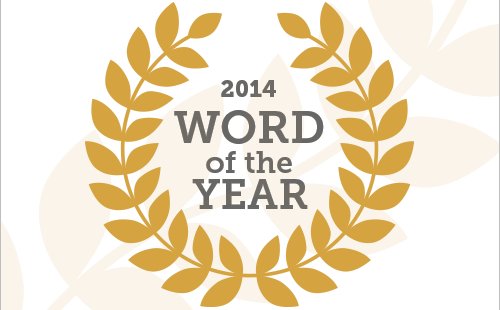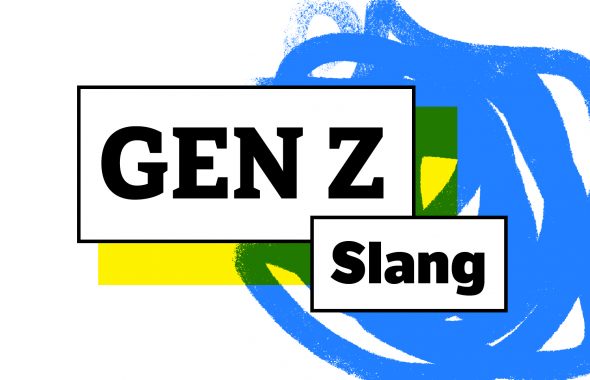The current Word of the Year is ready to be found. Uncover it here!
In 2014, the Ebola virus, widespread theft of personal information, and shocking acts of violence and brutality dominated the news. Vulnerability and visibility were at the core of the year’s most notable headlines. Encapsulating those themes, Dictionary.com’s Word of the Year for 2014 is exposure.
The word exposure entered English in the early 1600s to refer to a state of being without shelter or protection. Over the course of the next few centuries, it picked up numerous meanings, four of which were particularly germane to 2014. In the spring, one of these took on grave importance:
Exposure: the condition of being exposed to danger or harm.
Over 14,000 cases of Ebola were counted in West Africa by mid-November of this year, with over 5,000 confirmed deaths. The outbreak was described by the World Health Organization as the “most severe acute health emergency in modern times.” Exposure to the disease was of paramount concern as health workers in countries including Liberia, Guinea, and Sierra Leone struggled to contain the deadly virus and provide the best possible care to those infected.
In the US a second sense of exposure became increasingly relevant as the conversation about the virus spread through the airwaves. In the mid-1950s, a media-centric sense of exposure arose in the US to discuss the emerging power of broadcasting and advertising:
Exposure: the act of bringing to public attention, especially through media coverage; publicity.
Ebola gained widespread publicity within the US in late summer and early fall. In the three weeks spanning September 29 to October 17, around the time of Thomas Eric Duncan’s death in Dallas, three top network nightly news programs, ABC World News, CBS Evening News, and NBC Nightly News, gave 28 percent of their total broadcast time to Ebola. Of that time, 11.7 percent was devoted to the outbreak in Africa. A poll released on October 8 by the Eagleton Center for Public Interest Polling at Rutgers University in New Jersey revealed that people who consume high levels of Ebola-related news were the most confused on the topic. The media blitz eventually softened and large-scale fundraising efforts were launched by both Facebook and Google to support efforts in West Africa. The arc and nature of the publicity surrounding Ebola sparked discussion on not only the transmission of the virus, but also the transmission and distortion of ideas.
A third meaning of exposure set several critical conversations into motion in 2014:
Exposure: an act or instance of bringing to light, revealing, or unmasking crime, misconduct, or evil.
On August 9, Michael Brown, an unarmed 18-year-old black male, was fatally shot by a white police officer in Ferguson, Missouri. In the days following the shooting, residents of Ferguson took to the streets in protest. The police force there responded to the protests with riot gear, armored trucks, and tear gas. Social media saw an outpouring of activity exposing experiences of racism and prejudice far beyond Ferguson, often gaining traction with hashtags, most notably #IfTheyGunnedMeDown. On August 11, the FBI opened a civil rights inquiry into the shooting of Brown. On August 20, a grand jury began hearing evidence to determine whether to indict Darren Wilson, the officer who shot Brown. Awaiting the jury’s decision in November, the hacktivist group Anonymous began exposing the identities of members of the Ku Klux Klan and seized the KKK’s Twitter account after the hate group threatened to use “lethal force” against protesters. Ferguson became a flash point for discussions on racism, police militarization, and abuse of power, prompting many to reflect on how far we have come in the Obama era.
In February, the celebrity gossip site TMZ released footage of NFL player Ray Rice dragging his unconscious then-fiancée Janay Palmer out of an elevator in Atlantic City. The footage resulted in Rice’s suspension from two games in the season. The punishment earned widespread criticism, prompting the NFL to rethink their policy on domestic violence. In August, the NFL announced a new policy of a six-game unpaid ban for first offenses of domestic violence and a lifetime ban for second offenses. The following month, TMZ released footage of Rice punching Palmer inside the elevator; hours later Rice’s contract with the Baltimore Ravens was terminated. Set against the backdrop of these events, President Obama launched an initiative to raise awareness of sexual violence on college campuses, telling reporters at the campaign’s unveiling,”The fact is from sport leagues to pop culture to politics, our society does not sufficiently value women.”
In late summer, the world was exposed to two shocking acts of violence in graphic detail as the terrorist organization ISIS posted YouTube videos of the beheadings of American journalists James Foley and Steven Sotloff. For many, these videos, along with the organization’s methods of aggressive and direct engagement on social media, brought a terrifying and gruesome reality of our times into stark focus.
Exposure has another sense that pervaded the headlines and scandals of 2014:
Exposure: disclosure of something private or secret.
As our credit cards, passwords, and private photos were hacked, stolen, and distributed this year, we became aware of the vulnerability of personal information. In January, Target disclosed that 110 million customers had credit cards, pin numbers, and other information stolen. In April, the security bug Heartbleed was reported, revealing that millions of people’s passwords and behavior online was insecure. In September, Home Depot announced that 56 million credit and debit card numbers were stolen from their system, and in October, JPMorgan Chase revealed that contact information for about 76 million households and 7 million small businesses was hacked in a cyberattack over the summer.
Another form of stolen private information captured our attention this summer: in August, Apple’s iCloud was hacked resulting in the exposure of nude photos of over 100 celebrities, including Jennifer Lawrence, who called the attack a “sex crime” when she told Vanity Fair, “The law needs to be changed, and we need to change.” The widespread, involuntary exposure of personal information reminded us that our reliance on our technology introduces new kinds of risks.
From the pervading sense of vulnerability surrounding Ebola to the visibility into acts of crime or misconduct that ignited critical conversations about race, gender, and violence, various senses of exposure were out in the open this year. How did you see exposure in the news?
Do you remember last year’s Word of the Year? Read about it here.












